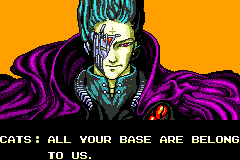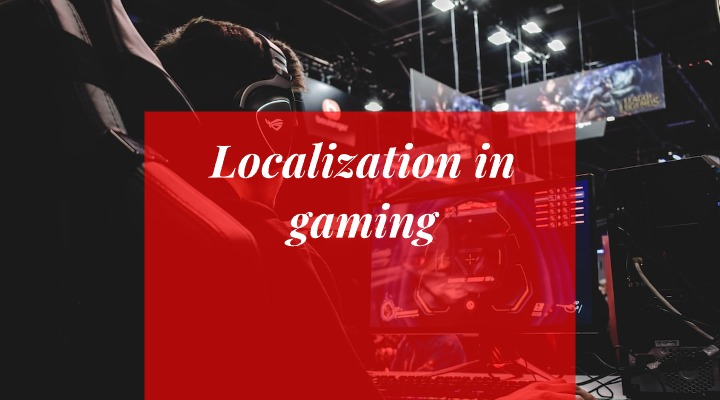The gaming industry is one of the fastest-growing sectors of the market, generating billions in annual revenues. However, this would not happen if it were limited to the home market, as the target audience is relatively limited in size.
That is why it is so important to translate games into other languages, even if only in the form of subtitles. Not having a native language is an insurmountable barrier for many players, especially in games where on-screen messages or dialogue choices are essential.
And most modern games offer this kind of experience. What is important, though, is that the best games are not translated 1:1 because that would dilute many nuances and make the whole process much less satisfying. And this is where the concept of “localization in games” comes in.
What is it, and what is it about? Keep reading to get the details.
Localization in gaming – what is it?
In simple words, game localization is the process of adapting a translation to a particular geographic region. The key word here is “adaptation”, because it is not just a matter of translating texts but of adapting them to the requirements of a specific country to provide a better experience for players. And there is no question that the gaming market is very sophisticated in this aspect.
A bad translation of a game can ruin it in the eyes of gamers, become the laughing material, or affect the game’s popularity. This is best seen in older games where the quality of the translation was often very poor.
Classic examples include:
- Tales of Berseria – the translation of some side quests is inferior, sometimes making it impossible to understand the mission.
- Zero Wing – a rather forgotten game that became a meme because of the phrase „All your base are belong to us”.

Source: https://en.wikipedia.org/wiki/All_your_base_are_belong_to_us
- Metal Gear – a series that has seen many sequels, but the first game suffered from translation problems that appeared from the very first moments of the game.
- Call of Duty: Modern Warfare 2 – the translation caused a lot of controversy and anger, and even the need for censorship, because the text in the English version, which was “Remember, no Russian,” referring to not using Russian during missions, was translated into the Japanese version as “Kill them. They’re Russian”. And that’s just one example of the many inaccuracies in this particular edition of Call of Duty.
Of course, the list is much longer, but fortunately, it is balanced by more modern games with really great examples of translations. So why do bad translations plague some games while others have perfected this art?
There are a whole bunch of reasons for that, and there is no doubt that the task of translating in games is quite a challenge.
Challenges in game translations
Every translation is a challenge, but games have taken this task to an entirely new level. Game localization requires a totally different way of expressing things, especially since the target audience is very critical and sensitive to all kinds of mistakes.
The biggest challenges involve translation:
- Idiomatic expressions and phrases
- Slang
- Jokes – often in the form of wordplay
- Cultural references
- Acronyms
- Other texts (such as songs or quotes used in the game)
This type of content cannot be eliminated from games, as it creates their atmosphere, but it must be done carefully to fit the audience of a particular language as well as possible while still providing the same entertainment experience. Also, it is crucial that the adaptation of each language version does not differ from the original too much, as many players like to try multiple language variations, and significant changes can cause confusion.
Localization in games is a sophisticated translation that must deal with many factors to adapt to the audience’s requirements while maintaining consistency with the original.
Another challenge is the scale of the translation. The first example that comes to mind is Bethesda’s latest game, “Starfield”, which has over 250,000 lines of text! And then there is other content, such as describing items found. That’s a massive amount of text.
If many people or several teams are working on a translation, it is very easy for discrepancies to appear (this is probably what happened in the translation process of the aforementioned “Tales of Berseria”, where the main storyline was translated well, while the quality of translation in the side tasks dropped significantly). In such a case, a glossary is helpful, which includes more specific terminology, making it much easier to ensure consistency.
Localization in gaming – summary
Game localization is more than just translation. It is the ability to combine the translated text seamlessly with the specifics of the region in which it will be available. It is not enough to simply capture the spirit of the original; it must be adapted to the needs of the local audience, incorporating nuances and cultural differences.
Sometimes, a poorly done translation can amuse players and create a wave of memes, but more often, it results in their dissatisfaction, criticism, or loss of trust in a company. On the other hand, a job well done leads to an improved player experience, greater gamer appreciation, and a stronger position for the company in the marketplace.
So, it is worth taking care of this aspect by outsourcing the task to professionals. By working with Aploq, you can be sure that your text is in good hands. Contact us today to get started.


